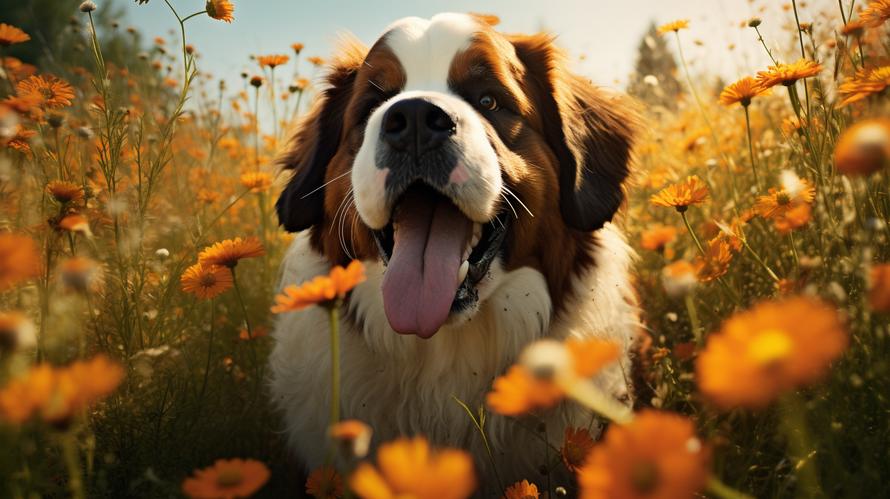Did you know that the iconic portrait of the daring and robust St. Bernard featuring a tiny barrel under their powerful jaws isn’t quite as historically accurate as we’ve been led to believe? That’s right, while these brave dogs have served as vital alpine rescue workers, they didn’t originally carry barrels of life-saving brandy to stranded mountaineers. In fact, most of these gentle giants nowadays prefer a more laid-back lifestyle, away from icy heights. Instead, they become devoted and endearing members of family homes worldwide, charming all with their heart-melting expressions and docile temperaments.
But have you ever wondered what’s the best way to keep your big, fluffy friend healthy, happy and bursting with energy? A champion St. Bernard isn’t just born, it is raised – with love, care, and of course, proper nutrition. Let’s explore some food tips that will keep your companion’s tail wagging and tongue lolling for years to come!
First off, the golden rule of all canine nutrition – every dog is unique, and what works for one Saint Bernard might not necessarily work for another. You should absolutely consult with your vet before implementing any significant changes to your St. Bernard’s diet.
Saint Bernards, like any large breed dog, grow rapidly when they are puppies. They can reach up to half their adult size within their first six months. An impressive feat, certainly, but one that means extra care and attention needs to be given to their diet. High-quality puppy food designed for large breeds is crucial during this growth phase. They should contain an appropriate balance of proteins, carbohydrates, fats, vitamins, and minerals to encourage steady growth and help form strong bones and joints.
Now, everyone loves the idea of treating their canine companions with delicious food tidbits. But, imagine the size of those tidbits relative to the total meal size for a dog as large as a Saint Bernard! Watch out for over-feeding, a common pitfall for St. Bernard owners. While their lovable, pleading eyes can be hard to resist, remember that obesity can lead to a host of health issues such as diabetes, heart disease and joint conditions.
One strategy to avert overfeeding is to provide regular meals rather than free feeding. Most adult Saint Bernards do well with two meals a day. It’s also wise to choose high-quality protein sources such as chicken, beef, or fish. Avoid dog foods that have corn and wheat as their primary ingredients – these are filler foods that won’t provide your colossal pal with essential nutrients.
Have you ever wondered why Saint Bernards have such soft, beautiful coats? Well, a large part of that could be the correct dietary fats. Fats provide energy but also make for healthy skin and a glossy coat. Look out for dog foods enriched with Omega-3 and Omega-6 fatty acids, or consider adding supplements like fish oil to your pet’s meals.
Your Saint Bernard will need proper hydration too, especially if they’re particularly active or the weather is warm. Make sure your beloved pet always has access to fresh, clean water.
Unfortunately, Saint Bernards are predisposed to certain health issues like Hip Dysplasia, a condition where the bones don’t fit together correctly, leading to pain and lameness. To maintain bone health, ensure your pet’s diet includes Calcium and Phosphorus. Also beneficial are nutrients such as Glucosamine and Chondroitin that support joint health.
Finally, remember to evolve their food habits as they age. Senior Saint Bernards have different dietary needs compared to their younger selves. They’d be less active and hence might need fewer calories. It is advisable to switch to dog food specifically oriented towards senior large breeds to ensure they receive appropriate nutrition.
So, now you have a game plan to keep your Saint Bernard in tip-top shape! It might seem a lot to manage, but don’t stress – your beloved canine friend will thank you with years of health, happiness and immeasurable loyalty. Diet plays an integral role in this beautiful breed’s vitality, coupled with regular exercise and regular vet check-ups. Our giants of the domestic dog world ask for little but give a lot. From lovably clumsy Saint Bernard puppies to dignified adults, let’s ensure they live the best lives they possibly can, in return for the affection and loyalty they unfailingly shower on us.



